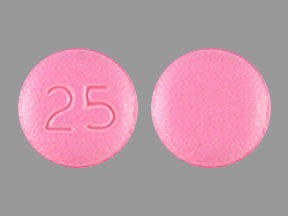
Paroxetine Hcl ER Coupons & Savings Card – Discount Prices from $23.37
Generic for: Paxil cr
My prescription
Edit
25MG, Paroxetine Hcl ER (30 Tablet Extended Release 24 Hours)
Select pharmacy

CVS
$24.02
COUPON PRICE
Walgreens
$23.37
COUPON PRICE
Walmart
$24.92
COUPON PRICE
Albertsons
$29.94
COUPON PRICEParoxetine Hcl ER savings card
Show this card to your pharmacist
Walgreens
$23.37
BIN
ID
PCN
GRP
019876
LH4B41AE3B
CHIPPO
LHX
Powered by
Price history for Paxil Cr (brand) & Paroxetine Hcl ER (generic)
30 Tablet Extended Release 24 Hours, 25MG
Average retail price for Paxil Cr
Average retail price for Paroxetine Hcl ER
Average SaveHealth price for Paroxetine Hcl ER
Our price history data is based on aggregated prescription data collected from participating pharmacies in America. Our prescription data updates daily to reflect the latest price changes. If you notice a missing data point, it means there wasn't sufficient data available to generate a monetary value for that date.
We analyzed Paroxetine Hcl ER prices for (25MG, 30 Tablet Extended Release 24 Hours) over the last 12 months. The average retail price was $232.32, while the average price using the SaveHealth discount card was $31.78. That's a savings of approximately 86.32% when using our Paroxetine Hcl ER coupon.
Compared to the generic version, Paxil Cr had an average price of $406.14 over the same time period. With the SaveHealth savings card, Paroxetine Hcl ER is 92.18% cheaper on average than Paxil Cr.
*Retail prices are based on pharmacy claims data, and may not be accurate when we don't have enough claims.
Paroxetine Hcl ER dosage forms
Dosage Quantity Price from Per unit 12.5MG 30 Tablet Extended Release 24 Hours $23.79 $0.79 12.5MG 500 Tablet Extended Release 24 Hours $121.70 $0.24 25MG 30 Tablet Extended Release 24 Hours $23.37 $0.78 25MG 60 Tablet Extended Release 24 Hours $29.75 $0.50 25MG 86 Tablet Extended Release 24 Hours $42.71 $0.50 25MG 90 Tablet Extended Release 24 Hours $43.47 $0.48 25MG 110 Tablet Extended Release 24 Hours $47.29 $0.43 25MG 500 Tablet Extended Release 24 Hours $121.70 $0.24 37.5MG 30 Tablet Extended Release 24 Hours $20.86 $0.69 37.5MG 90 Tablet Extended Release 24 Hours $44.91 $0.50
| Dosage | Quantity | Price from | Per unit |
|---|---|---|---|
| 12.5MG | 30 Tablet Extended Release 24 Hours | $23.79 | $0.79 |
| 12.5MG | 500 Tablet Extended Release 24 Hours | $121.70 | $0.24 |
| 25MG | 30 Tablet Extended Release 24 Hours | $23.37 | $0.78 |
| 25MG | 60 Tablet Extended Release 24 Hours | $29.75 | $0.50 |
| 25MG | 86 Tablet Extended Release 24 Hours | $42.71 | $0.50 |
| 25MG | 90 Tablet Extended Release 24 Hours | $43.47 | $0.48 |
| 25MG | 110 Tablet Extended Release 24 Hours | $47.29 | $0.43 |
| 25MG | 500 Tablet Extended Release 24 Hours | $121.70 | $0.24 |
| 37.5MG | 30 Tablet Extended Release 24 Hours | $20.86 | $0.69 |
| 37.5MG | 90 Tablet Extended Release 24 Hours | $44.91 | $0.50 |
| 37.5MG | 500 Tablet Extended Release 24 Hours | $129.70 | $0.26 |
